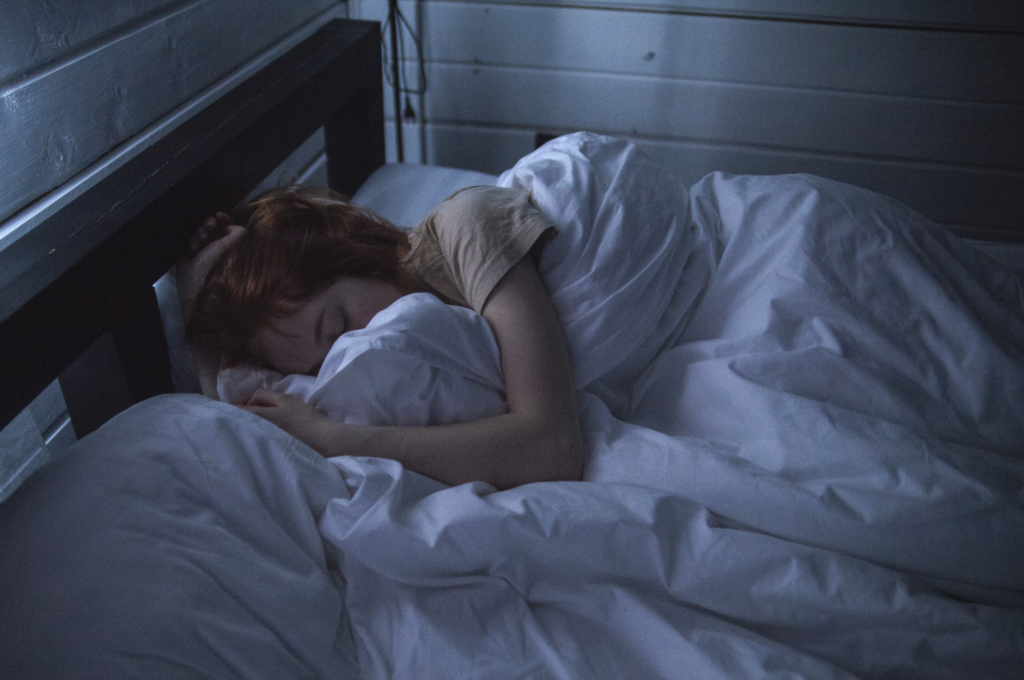
Ahh, sleep—my favorite thing in the whole world. When I get enough of it, I feel unstoppable. When I miss out on it, well, let’s just say you don’t want to be anywhere near me. Sure, coffee helps, but it’s no substitute for a good night’s rest. Whether you’re a brand new freshman, a burnt-out senior, or even a college kid’s parent, read on to learn how much sleep you actually need in college!
How Much Sleep Do You Need Every Night?
Understanding how much sleep you need is important to achieving your best health and performance in college.
For college students, seven to nine hours of sleep per night is the sweet spot. That said, individual needs may differ based on factors such as stress, physical exertion, and personal quirks. Take me, for example; I can get by on a mere five hours of sleep. Not to brag!
If you want to determine the ideal amount of sleep you need, just pay close attention to how you feel throughout the day. Make sure to adjust your sleep routine accordingly.
The Importance of Getting Enough Sleep in College
Cultivate a razor-sharp mind
According to research, not getting enough sleep can negatively impact your crucial cognitive abilities. This includes your ability to focus, your memory, as well as problem solving skills.
By making sleep a priority, you might find that your academic performance enhances. Furthermore, you’ll be better equipped to absorb and appreciate the knowledge and skills you acquire during college. To understand more about the significance of sleep for your brain, consult this National Sleep Foundation resource.
Maintain your mental well-being
Coping with the stress of college can be challenging. It’s a recipe for disaster when that is combined with sleep deprivation. Insufficient sleep has been associated with a heightened risk of anxiety and depression, which can further complicate handling the demands of college life.
Be more productive
Believe it or not, when you aren’t sleep deprived, you are actually much more focussed and productive. Whether it’s your coursework, extracurricular activities, or even that part-time job you’re juggling. Instead of chugging coffee and relying on all-nighters, break the cycle and embrace a healthier, more balanced lifestyle. If you’re looking to maximize your productivity, check out these sleep tips from the American Academy of Sleep Medicine.
No more fatigue-related mishaps
This one is self-explanatory. We have much more control over our physical well-being and we are less likely to experience accidents or injuries due to fatigue when we are getting enough sleep. No more tripping on stairs, dozing off during lectures, or making errors on assignments because of exhaustion. The National Sleep Foundation put together this excellent resource for how much sleep you need at different stages of your life.
How to Know When You Aren’t Getting Enough Sleep?
Recognizing the signs of sleep deprivation is crucial for ensuring that you address any sleep issues before they negatively impact your health and performance. Here are some common signs that you may not be getting enough sleep:
- Daytime drowsiness and fatigue
- Difficulty concentrating or focusing on tasks
- Memory problems
- Mood swings, irritability, or increased anxiety
- Falling asleep quickly upon lying down
- Relying on caffeine or other stimulants to stay awake
If you notice any of these signs, consider making adjustments to your sleep habits and schedule. Prioritizing sleep during your busy college years can impact your overall well-being significantly, not to mention your success academically!
There is no denying the importance of sleep during the demanding years of college. When you understand how much sleep you actually need, you’re able to take care of your mental health and enhance your cognitive abilities. You will notice a massive improvement in overall well-being and productivity. If you’re struggling to find the right balance between sleep and other aspects of college life, consider incorporating healthy sleep habits and seeking professional guidance if necessary.
Is It Possible to Make Up for Lost Sleep?
A common question among college students is whether they can make up for lost sleep later on, particularly after experiencing several nights of insufficient rest. The idea of compensating for missed sleep, referred to as “sleep debt,” is somewhat more intricate than merely sleeping in on weekends.
While you can recoup some of the sleep you’ve missed, constantly depending on this approach can throw off your sleep routine and adversely affect your overall sleep quality. The National Sleep Foundation emphasizes that a regular sleep schedule is crucial for upholding good sleep hygiene, and erratic efforts to make up for sleep might not adequately offset the long-term consequences of sleep deprivation.
Nevertheless, if you’ve had a string of restless nights, it’s advantageous to allow yourself extra rest to aid your body in recovering. This can be accomplished by going to bed earlier or taking a brief nap (not exceeding 90 minutes) during the day, ensuring that you don’t postpone your usual bedtime.
The main point to remember is to focus on steady, high-quality sleep rather than depending on the notion of “making up” for lost sleep later. By adhering to a consistent sleep routine and implementing proper sleep hygiene, you can support the well-being of your body and mind throughout your time at college.
To learn more about sleep debt and how to make up for lost sleep, explore this National Sleep Foundation article: How to Catch Up on Sleep.
What do you think?
Did you make sleep a priority during your college years? How did it influence your overall well-being and academic performance? Are you still grappling with striking the right balance between sleep and other facets of college life? Let us know your thoughts in the comments section below.
















